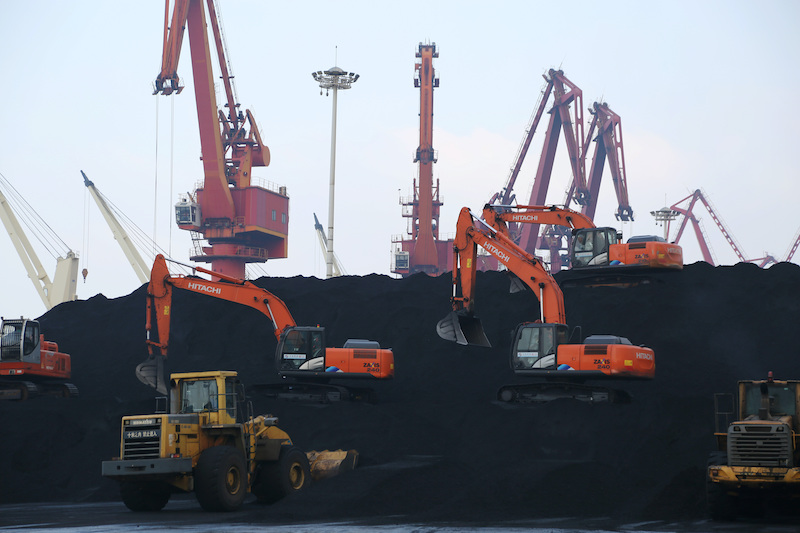China’s coal imports from Russia were the most in five years in August, as the country experienced a surge in demand due to a prolonged heatwave.
The world’s biggest coal consumer bought 8.54 million tonnes of Russian coal to help deal with the extreme hot weather, which dried up rivers – and hydropower sources – in southwestern Sichuan province.
That amount surpassed the previous peak of 7.42 million tonnes in July and was 57% higher than in the same period last year, data from the General Administration of Customs showed on Tuesday.
The monthly figure was the highest since comparable statistics began in 2017.
Imports from Russia have surged in recent months as Europe has suspended purchases from the country after it sent tens of thousands of troops into Ukraine, and imposed sanctions that have forced Moscow to sell its coal at a steep discount.
Prices for Russian coal have risen as both China and India stepped up buying, traders said, but were still cheaper than domestic coal of same quality.
Russian thermal coal at 5,500 kcal on delivery basis to China was assessed at about $155 a tonne in late August, up from about $150 a tonne a month earlier.
ALSO SEE:
China’s Imports of Russian Coal Hit Five-Year High in July
Spike in Indonesian Coal Imports
With severe drought and the two-month-long heatwave hitting western and southern China from late July, coal-fired power plants geared up production to meet the spiking demand for air conditioning and the supply gap from hydropower stations.
They also increased purchases of higher quality thermal coal, such as Russian coal, to improve electricity generation efficiency.
China brought in 15.8 million tonnes of the dirty fuel from its top supplier Indonesia in August, 35% higher from July, data showed.
But that was still lower than the 17.3 million tonnes imported in August last year.
The increase of Indonesian coal purchases came as lucrative prices encouraged utilities to place more orders. In August, Indonesian 3,800 kcal thermal coal was about 170 yuan ($24.26) a tonne cheaper than the same quality Chinese coal, and 4,700 kcal coal was 140 yuan lower.
Power utilities are expected to increase imports in October to replenish stocks ahead of the kick-off of the heating season in most of northern China in mid-November.
However, as renminbi depreciation continues, imported coal will become more expensive for Chinese buyers and potentially dent demand.
- Reuters with additional editing by Jim Pollard
ALSO SEE:
India’s HDFC Bank Aided Yuan Trade in Russian Coal
India Cement Maker Pays For $26m Russian Coal Cargo in Yuan
US Says Five Chinese Companies Support Russia’s Military
























